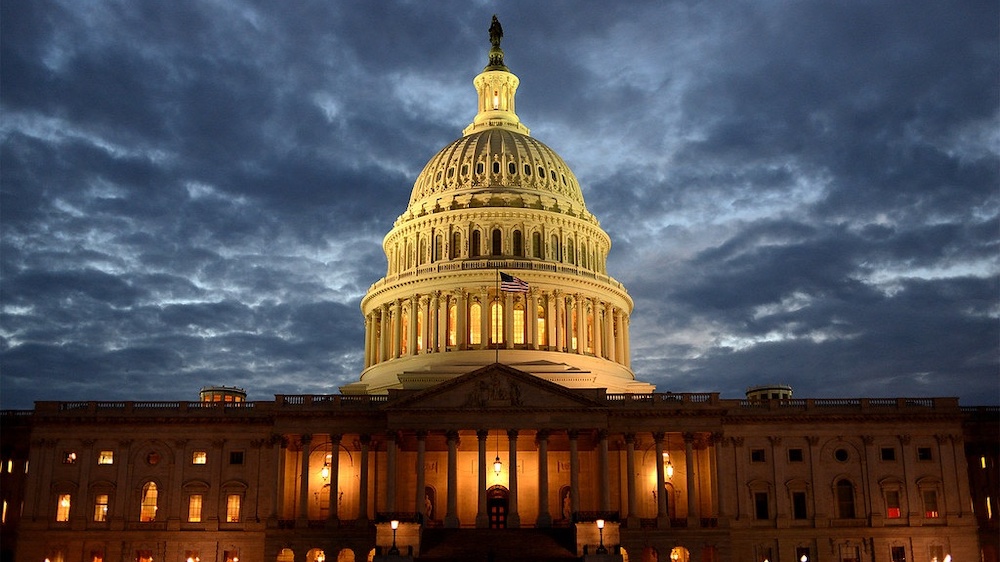If you’re interested in sharing your opinion on any cultural, political or personal topic, create an account here and check out our how-to post to learn more.
Opinions are the writer’s own and not those of Blavity's.
____
As Congress rushes to deliver bills to make crucial investments in infrastructure, jobs and families, much resistance is coming from those who pretend to fret over budget deficits and the federal debt. These irresponsible and dangerous arguments about the debt and deficit have been widely debunked, but the roots of self-styled deficit hawks go deeper than their policy positions. For more than 150 years, they have given a veneer of legitimacy to those seeking to entrench white power at the expense of Black and brown communities.
Deficit fearmongering stretches back to Reconstruction, when the white, Southern elite sought to entrench their economic and political power after emancipation. When the South saw its first influx of Black elected officials after the Civil War, they pursued an agenda grounded in progressive investments in partnership with white legislators from poorer areas. These investments focused on rebuilding the South’s infrastructure and implementing social spending to support the millions of newly-enfranchised Black Americans who were emancipated but had few resources for themselves or their families.
Southern white elites, threatened by this new political coalition, developed coded rhetoric about rising government debt and excessive spending to justify overthrowing Black- and poor white-led state governments across the South.
At the time, these attacks were not yet dog-whistles but paired with blatantly racist rhetoric. As Vanessa Williamson of the Brookings Institution writes, these southern elites painted “government by black people and poor whites as intrinsically corrupt.” In South Carolina former secessionist W.D. Porter led a Tax-Payers’ Convention in 1871 to protest “the fearful and unnecessary increase of the public debt”; “wild, reckless and profligate” spending; and “excessive taxation.”
This new rhetoric was a thin veneer for white supremacy. Just three years earlier in 1868, Porter wrote a letter opposing Black male suffrage, saying that in majority-Black South Carolina it would mean “the superior race is to be made subservient to the inferior.” Men like Porter eventually led the way in retaking control of Southern states, instituting brutal Jim Crow regimes and locking Black communities into decades of poverty.
In the decades since then, white elites have dusted off so-called “race-neutral” debt and deficit rhetoric practically every time public investments that might benefit Black and brown people are on the table. From opposition to the “cost” of the Civil Rights movement’s demands and President Johnson’s anti-poverty Great Society programs, to President Reagan’s infamously anti-Black “welfare queen” trope, these ideas have become so entrenched in the way we talk about public spending that it’s easy to forget their racist roots.
Using seemingly race-neutral terms, those arguments were propped up by a constellation of groups that emerged in the 1970s and ‘80s to push a right-wing agenda on government spending and reconsolidate white wealth and power. That included openly conservative groups like the Heritage Foundation and the CATO Institute, alongside groups like the Committee for a Responsible Federal Budget (CRFB), founded in 1981, and currently led by all white board members and executives. The CRFB presents itself as a nonpartisan and objective watchdog, despite being largely bankrolled by the Peterson Foundation, which is named for billionaire investment banker Peter G. Peterson. Peterson once served as President Nixon’s Secretary of Commerce, and claimed that “runaway spending on Social Security, Medicare and other entitlement programs … had lit the fuse on a budgetary time bomb.”
That "time bomb" has never materialized, of course, but that hasn’t stopped so-called deficit hawks from manufacturing a self-described “artificial crisis” to block long-overdue investments in Black and brown communities. The deficit squawks’ artificial crisis around debt, however, studiously ignores a real crisis: As of the latest jobs report, the unemployment rate stood at 8.8% among Black Americans and 6.4% among Latinos, compared to just 4.5% among white Americans. The racial wealth gap is as big as it’s ever been, and Black and brown workers are still feeling the worst effects of the pandemic.
Those same workers voted in the last election for Democrats to deliver critical investments in jobs and infrastructure after decades of neglect and rising inequality. Yet once again, with the fight over the debt limit looming, seemingly race-neutral arguments about the deficit are providing a thin veneer to block the will of Black and brown voters — keeping power in the hands of a white, wealthy elite. It’s time to finally reject the racist foundation of those arguments and build an economy that truly works for all of us.
____
Jeremie Greer is the Co-Founder and Co-Executive Director of Liberation in a Generation, and Rakeen Mabud is the Managing Director of Policy and Research and the Chief Economist at the Groundwork Collaborative. Both groups recently joined Stop Deficit Squawks — a coalition to resist debt and deficit fearmongering in Washington.
